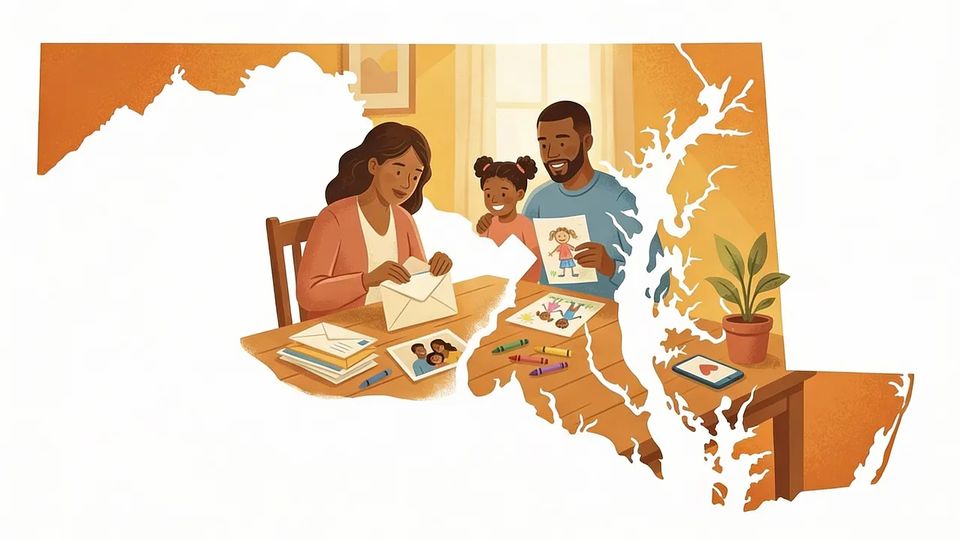
Maryland
Facility Info
Maryland DPSCS COVID-19 Hotline (24/7, general information): 410-724-5722. Metropolitan Transition Center (MTC): 954 Forrest Street, Baltimore, MD 21202,...
Read guideVisitation
Before you travel, assume schedules and operations can change. Maryland DPSCS may modify operations and inmate movement based on COVID-19 data and Maryland...
Read guideWho can visit and how to get cleared (in-person)
First, figure out which system your loved one is in. Approval rules differ depending on the facility. For federal BOP facilities, you can only visit after...
Read guidePhone & Messaging
Maryland DPSCS virtual video visits require a Microsoft Teams account. Set this up ahead of time so you're not troubleshooting at the last minute.
Read guideSending Money
For Maryland DPSCS lockbox facilities, send money orders to: P.O. Box 17111, Baltimore, MD 21297-0382. Need to ask about a cashed money order? DPSCS lists...
Read guideMail & Photos
Mail rules depend on the facility, so follow their specific instructions when you have them. At Anne Arundel County's Jennifer Road Detention Center,...
Read guidePractical visiting-day checklist and accessibility accommodations
If you or someone in your party needs an accessibility accommodation, DPSCS has ADA policies in place. These ensure qualified individuals with disabilities...
Read guideFacility operations, intakes, and notification options
Processing and intake timelines affect when money, mail, and visits start working. In Anne Arundel County, the detention facilities complete initial intakes...
Read guideFind an Inmate
Search for a loved one and send messages and photos in minutes.

Common Questions
Q
How do I request an in-person visit at Metropolitan Transition Center (MTC)?
To request an in-person visit at Metropolitan Transition Center (MTC), email MTC.InmateVisitation@maryland.gov. DPSCS lists this email as the contact point for MTC visitation requests.
Q
Do I need Microsoft Teams for virtual visits with Maryland facilities?
Yes for Maryland DPSCS video visitation, you must have a Microsoft Teams account. Set it up ahead of time so you are ready when your visit is scheduled.
Q
Where should I send a money order and who can deposit money for an inmate?
For Maryland DPSCS lockbox facilities, money orders are sent to P.O. Box 17111, Baltimore, MD 21297-0382. At least some county facilities do not accept deposits from visitors; for example, Anne Arundel County states it will not accept visitor deposits and instead uses lobby kiosks, online, and phone deposit methods (with a listed facility number for deposits).
Q
Can I mail photos directly from home and are there size limits?
Some facilities require photos to come from approved vendors rather than from home. For example, Jennifer Road Detention Center says photos must come from approved facility vendors and can be no larger than 4" x 6". If you are sending a care package through Maryland DPSCS Access Securepak, DPSCS limits shipments to $100 of product per incarcerated individual per quarter.
